19.05.14
Making buying cheaper and easier
Relationships between hospital trusts and their suppliers are changing. NHE got an in-depth understanding of just how big the impacts of these changes are from Ali Ali, head of procurement at Bradford Teaching Hospitals NHS Foundation Trust, and Martin Matkin, director of Cook Medical’s Healthcare Business Solutions team in Europe.
Bradford Teaching Hospitals NHS Foundation Trust’s procurement team manage an annual spend profile of about £110m, with a 21-strong department responsible for medical and surgical consumables, medical equipment, services, IT, and professional services.
Ali Ali (below), who heads up the team, joined the trust – and the NHS – in 2008, after 10 years with AstraZeneca.
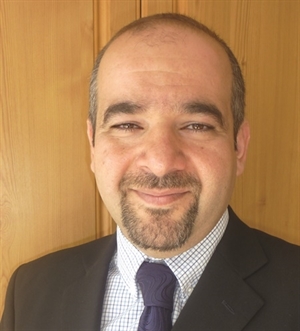
He was keen to tell NHE about the way improved relationships with key suppliers can cut overall costs, strip out errors, and reduce risk, ultimately meaning better patient care.
Ali told us: “The private sector has, for a long time, recognised the need to work with suppliers as partners – there’s obviously the Toyota model to work with the supply chain. Five years ago, here at Bradford Hospital, it was a very transactional department. That effectively meant it wasn’t seen by either suppliers or internal customers as a value-adding or important function. Its main focus was to convert requisitions into orders.
“When we tried to revolutionise ourselves – to add more value, and to influence the whole supply chain throughout the whole life-cycle of the spend – we were viewed as a potential threat to the direct relationship between clinicians and suppliers. Suddenly purchasing and procurement people were coming in and saying ‘we need to be part of this relationship’.
“Some suppliers said they weren’t interested in that. However, Cook Medical converted and started working closely with us. They embraced the change, and that’s how the relationship evolved.”
Cook Medical, a major supplier with 16,000 products in its catalogues, is family owned and was founded in Indiana in the US over 50 years ago. It has administrative offices in London and Manchester as well as an Endovascular Planning Service office in London. Cook has 141 employees in the UK in addition to the 800 employees at its European sales and customer service headquarters based in their manufacturing plant in Limerick, Ireland.

Martin Matkin (below), director of Cook Medical’s Healthcare Business Solutions (HBS) team in Europe, explained: “As an organisation, we’re trying to have a more strategic, forward-thinking relationship with the NHS.
“If you take the relationship seriously and have the right conversations, there’s a lot you can do together. Our approach is to find the people we can work with in that way, and Bradford is certainly one of them. Changing the conversation and working differently gives better outcomes than just working on the price of a catheter or a needle.”
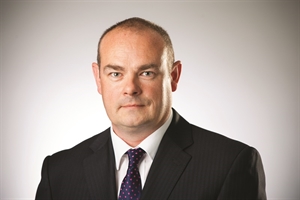
From transactional to trust-based
Matkin spoke frankly about past mistakes, saying that the relationship with Bradford five years ago was not good – it was very transactional, and Cook was “not able to meet their needs in working with a key distributor… it’s fair to say that put a barrier between us.”
“But when our team [HBS] formed, we started to work with Bradford more closely and developed that relationship at a higher level – not just reps talking to buyers within the departments.”
Matkin added: “We started to do pilot studies and build trust, and all the time you’re working together you learn more about each other. Five years on, we can now have very open and frank conversations. We trust each other, we’re able to share information, we’re far more honest with each other, and we make time for each other.
“We regularly have Ali’s full team and the full Cook sales and business management teams together, sitting around a table and looking at what we’re achieving and where we’re going. Those conversations are not about the product and not about the price. They are business conversations.
“If I was to advise the NHS on restructuring procurement, I’d like to see rooms all over the country where suppliers and procurement sit down to talk and are not allowed to mention price. Find other ways of finding savings and efficiencies; that’s where the big money is. It takes an open and honest conversation, built on trust, and having the right people in the room.
“This team is not a sales team, they’re experienced business people. At Bradford, they’re trying to help business run smoothly, and cut cost out of doing business together.”
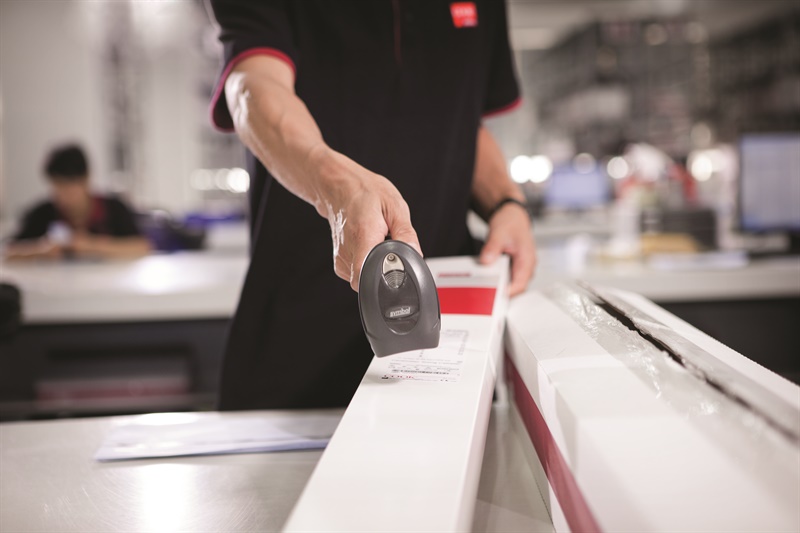
Ali said there has been a big change from before, when individual reps would be responsible only for their own department. “It was very segregated,” he said. “But then the umbrella organisation within Cook [HBS] started looking at it more strategically, and treating it as a single account and a single relationship between the supplier and the hospital.”
In the past, if a clinician told the procurement team about a rep having seen them about a new product, the “instinctive reaction would be that this is something we don’t need and that the rep is just trying to pull a fast one”, Ali said. “But that’s really changed now. If Cook today wanted to introduce a new product, they’d know who to speak to and we can have an honest conversation. Even if there’s a cost implication, we can discuss whole-life costs and what it means for the patient.”
Cost and risk
We suggested to Matkin that taxpayers might be wary of such close relationships between private sector suppliers and NHS buyers, and would prefer costs to be driven down by vigorous competition, not collaboration.
He said: “Everybody can get a better price somewhere, no matter the industry. But for me, it goes back to the overall cost of ownership. I can buy a very cheap car, but my insurance premium will go through the roof because of the risk. I’m sure Ali could go out to tender, and push suppliers to get lower prices – but those suppliers may not be e-enabled, that’ll introduce errors, and the trust will need more people to deal with the problems created. We can make the system more efficient and drive long-term savings.”
Ali agreed, saying risk was the big factor. He said that just as consumers make distinctions between shops in their daily lives based on the type of product or service they’re buying, as well as quality, cost, after-sales service, reliability, corporate responsibility and so on, so must the NHS.
“I wouldn’t want a partnership with every single supplier on our database. There’s a correlation between spend and risk,” Ali said. “If it’s high-spend but low-risk, I might be more interested in the cheapest commodity – for example, stationery products. But for high-end medical devices, for invasive products where patient safety is an issue, you have to factor in the risk – the relationship with the supplier needs to be seen in a completely different way.”
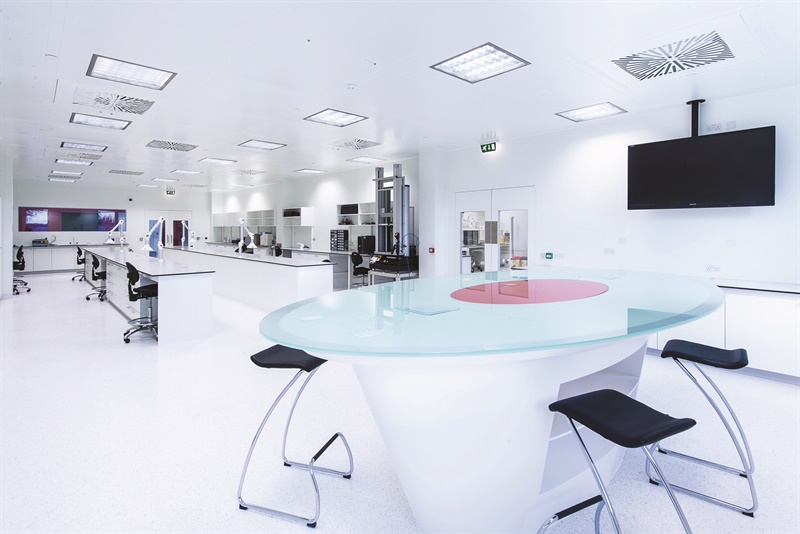
Matkin suggested that by having closer relationships, driving efficiencies and doing business better together, long-term costs are reduced, freeing up funding within the healthcare system to “do the things that really need doing”.
“We’re starting to see an acceptance of the message about doing things differently, but Bradford shows it’s not always about a massive project – it builds over time. Work on the small things and improve them, then bigger things come out of it.”
Examples of that, Ali said, include the ability to adopt innovative products. He explained: “A trust of our size, without this collaboration and partnership, would not always be able to adopt innovative products when they come to the market. But through these partnerships we’ve been able to embrace some of that new technology.”
Another benefit is carbon-cutting, as streamlining the ordering process and delivery has had “fantastic and significant” results on energy efficiency.
eProcurement
NHE spoke to Ali and Matkin during a big week for NHS procurement, with the launch of NHS England’s new eProcurement strategy. Many of the key aims of that strategy, from cutting out unnecessary costs to improving patient safety through the use of standardised GS1 codes, are already in place in the relationship between the Bradford trust and Cook Medical.
Ali said he was “absolutely astonished” when he joined the NHS and saw the paper-based procurement processes still in use. “To see people still using paper requisitions, with nothing computerised – it was like the dark ages. But we’ve transformed: it’s based around catalogues, price lists agreed with suppliers, and an optimised transactional interface at the supplier level to receive the orders. Cook has absolutely embraced all of this. They worked with the catalogue enablers to improve their systems. That, from our point of view, doesn’t just mean easier ordering and better transactions and making things easier for the end-user: it also means better intelligence overall. It allows us to make better-informed decisions, based on better spend management and better demand management. It’s evolved significantly, and will continue to work.
“We’re a large hospital, with more than 5,000 staff, 3,000 of whom are enabled to create requisitions. Cook can receive 10-15 requisitions a day from within the hospital. We’re trying to consolidate that, and ensure that what’s urgent is defined as urgent, freeing up efficiencies for both organisations.”
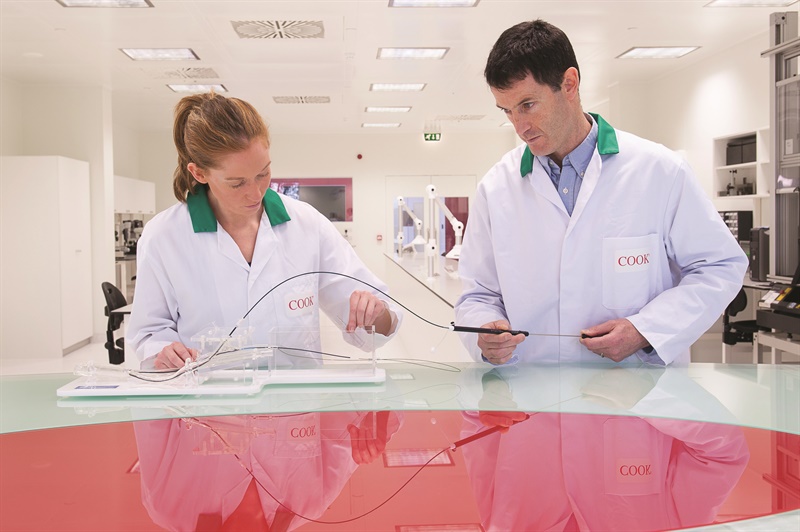
Removing barriers and increasing accuracy
Discussing the eProcurement strategy, Matkin said: “We’re already GS1-enabled; all our products have GS1 barcodes. We’re waiting for it to take off and for the demand from customers to start putting that into action. It’s the way forward.
“Working in that way means, on a really basic level, that the errors between a customer and a supplier are reduced. If the NHS queries an invoice, we hear of costs of between £25 and £80 per query they’re trying to sort out. If they’re placing 800 orders a year and 20% of those have got queries, you can end up spending more on queries than you’re making in savings. It can add up.
“E-commerce is fantastic in removing those barriers and increasing accuracy. It’s about easy, correct transactions without the hidden costs of solving problems and correcting errors.”
Ali said that the feedback he’s received is that Bradford is ahead of most of the NHS on eProcurement. About 80% of its spend (Ali’s team handles everything except pharmaceutical drugs and estates-related procurement) is via catalogues and through methods that create “significant transactional efficiencies”.
That frees up staff and resources to focus more on the strategic aspects of demand management and sourcing, Ali told us. “We are ahead of the game. Having briefly looked at the new eProcurement strategy, we are on the right track to implement the required changes.”
The eProcurement strategy (more on pages 48-51) suggests that just by using GS1 coding, the savings to an average trust could be £3m to £5m. Matkin said: “How long is it going to take a procurement department to drag that saving out of suppliers, year-on-year? It seems to me we’d better talking together as procurers and suppliers to discuss getting GS1-enabled as soon as possible, not be spending all our time discussing knocking £1 off the next catheter.”
FOR MORE INFORMATION
www.bradfordhospitals.nhs.uk/about-us/procurement
www.cookmedical.com/hbs